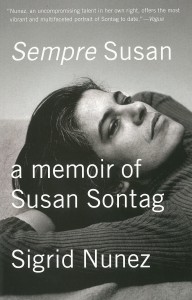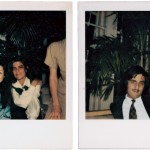Sigrid Nunez says Susan Sontag “liked to refer to herself as a self-defrocked academic. She was even prouder to call herself self-created. I never had a mentor, she said.” I’ve never had one either, but I derive no pride from my mentorlessness. I have often wished to have one but never quite succeeded. Only twice have I even come close.
The first time I was 20, attending a weekly writing workshop in the benooked, creaky-floored office of a woman with a large collection of cotton turtlenecks. She had the quietest variety of charisma I have ever seen. She spoke clearly but cautiously. She referenced enough details about her life—she had worked in theater, studied counseling—that you could almost piece it together, but not quite. She seemed, to me and probably to the others whose senior “theses” (i.e., “poetry”) she oversaw, something like an oracle. How could I have done anything but pore over her two collections, one acquired from the student bookstore; one, out-of-print, from a campus library that almost lost it to the theft I couldn’t quite bring myself to commit? How could I then have avoided my spellbound and, in retrospect, painfully unsuccessful efforts to imitate her poems?
If I had thought she would recognize these attempts, as she must have, I could never have handed them over. That was where what could have been mentorship broke down. It was impossible to imagine ever revealing that I had read, let alone liked, what she wrote—an affliction akin to avoidance in the face of much-sought romance. After I realized one afternoon that it I’d left my bag open, allowing the photo on the back of her book to show, it took me days to shake my embarrassment. Despite the fact that her classes were tiny and intimate, I felt paralyzed by the thought of our relationship progressing along a road that diverged from the usual byways: here is my homework, will you write me a letter of recommendation? I would have been disappointed with a B or a no—a teacher’s disapproval—but devastated by anyone knowing how highly I valued what she thought of me as a human. In addition to seeming presumptuous, it made me feel uncomfortably vulnerable to think of showing her, or speaking to her about, something that wasn’t required by our roles.
In its examples of the word’s usage, Merriam-Webster online includes the following: “After college, her professor became her close friend and mentor.” (Italics mine.) I don’t think it’s an accident that this happens, even in a sentence with no context, only outside an institution. Implicit in Sontag’s claim to have been sans mentor in the midst of her influential professors—“among them Leo Strauss and Kenneth Burke, whom she remembered as extraordinary teachers and for whom she had no end of praise”— is the idea that mentorship begins only when the connection between people becomes stronger than its foundation. Your coworker only becomes your friend when your relationship no longer necessitates an office. While Nunez appreciated Edward Said in the classroom, she ate soup and went to the movies and fought with Sontag. For a teacher to become a mentor, she must, as per Webster’s, become, if not your lover, your friend.
I would like to have been friends with my second boss, the second person whose mentee I like to think I might have become. She too had charisma—is this required, on some level, of potential mentors?—but hers was more professional (perhaps the publishing-office context determined this). On my first day of work, she told me the day started at 9 but really anytime before 9:30 was fine. Having just left a job where my shift started at 6 in the morning and I was terrified of arriving at 6:05, I could barely process this first tiny sign of her infinite-seeming confidence. She told jokes; she was smart; she was the only person I knew whose “wit” other people talked about. Most saliently, she was encouraging. So, predictably, I feared disappointing her. The more we talked, the more likely she was to find that I was less capable and promising than she appeared to think I might be. And so nervousness rendered me even more awkward and mute than I already was (am) during all of our social interactions. For all my admiration, for everything else I might have learned, the relationship never went much beyond employment: here is the work you asked of me; may I list you as a reference?
I am not sure whether, even if I had welcomed it, these women would have wanted to be my mentors. But I am certain that it didn’t much matter: I have always been too scared, in one way or another, to pursue or even accept mentoring; too proud to admit up close what I don’t know; too intimidated to seek those who can show me. So when I read about Sontag’s blithe dismissal, I feel like a sugar-starved child watching adults decline ice cream cones. I also feel confused, because to my outsider’s eyes being mentored requires just the kind of courage (to transcend institutional prescriptions) and curiosity (about the as-yet-unknown) for which Nunez remembers her.
Why didn’t Sontag ever have a mentor? Perhaps she did and couldn’t admit it (Nunez muses that she “she must have learned something from the college professor she married when she was just seventeen”); perhaps her reportedly outsized pride made the idea intolerable. Whatever the case, I’m glad Nunez had a different fate. By accepting mentorship and then writing about it, she exemplifies the kind of learning Sontag valorized: an unending conversation, at once critical and admiring.




